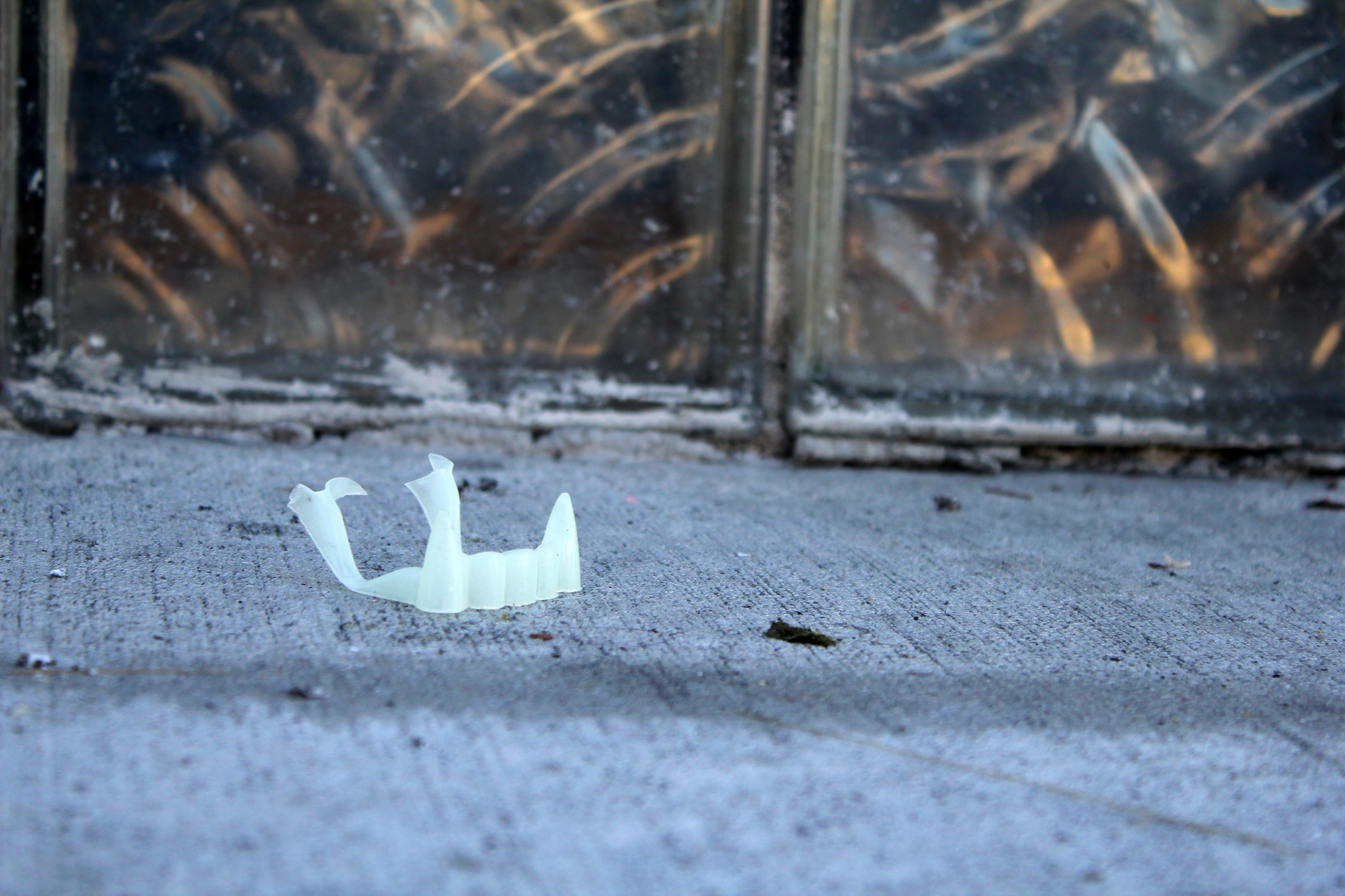Samantha Memi
You know what I mean, don’t you, when you get up in the morning and walk through to the kitchen, tousle-haired, yawning and scratching your bum, and in the kitchen the man drinking coffee and eating toast isn’t your husband, and the children playing with their Coco Pops aren’t your children, and the man who isn’t your husband says,
—Morning darling, sleep well?
What do you say?
—Who are you? is the only thing that comes to mind, and you immediately realise from the look of the children that they think you’re playing silly buggers. They start giggling. —We’ve heard that joke before, Mummy.
—Yes, says the man, —it’s wearing a bit thin.
—But I don’t understand, you say. —What’s going on?
—Sit down, says the man. —I’ll get you a cup of tea. Toast?
You sit down. The elder of the two children looks at you and says, —Mum, you know you said I could go to Paris with Angie and Pat.
—Um?
—Well, Angie’s mum said can you phone her today or tomorrow so you can sort out the arrangements. I meant to tell you last night but I forgot. At least I remembered this morning.
Her younger sister giggles.
—What am I supposed to tell her?
—I don’t know. Why ask me?
They both giggle.
The man who called you darling brings you toast and tea.
The tea warms you, the toast is delicious, but before you’ve finished your last bite, he asks, —Ready?
—Ready?
—To go to work.
—What about the children?
—Janine‘s here.
—Janine?
—Come on, hurry up. You’ll be late.
You follow him into the hall. He takes a coat from a coat rack and hands it to you.
You want to say, How can I go to work wearing only a bath robe and slippers, but when you look you have black court shoes and a black skirt and white shirt and a blue jacket. You think, why do I have these horrible clothes. He opens the front door and you follow him out.
He says, —Close the door.
—Of course, I forgot.
—I’ll get the car.
You take this as a notice to wait. So you wait and wonder. You look at the garden. Well-tended flowers in bloom. How did you get here?
In the car he says, —Have you thought any more about what I said?
What can you say?
—No, I haven’t.
—I think you should. It’s important for the children. I’ve thought about it.
He looks at you briefly, then back at the road.
—I’ve decided you can have the house.
So you’re getting divorced. Why?
He stops at a crossing. You feel his impatience as he waits while schoolchildren are ushered over.
He drops you outside an office building.
You say, —Thank you.
—Pick you up at five.
—Okay.
You walk to the door. The doorman tips his hat and says, —‘morning.
As the door opens a young man comes rushing over. —Hi, he says and smiles.
—Hi, you answer and smile.
—That was pretty horrible yesterday.
—What was?
He looks surprised. —Maisie getting sacked.
—Oh yes.
—I like the way you stuck up for her.
—Yes.
—How did you get on last night?
—Oh, fine.
—Nice house?
—Yes.
—So you’ll buy it?
You’re buying a house? Presumably now you won’t need to.
—Um, maybe.
He steps into a lift crowded with people. He squashes in to make room for you. You squeeze in beside him.
No one speaks, as if a notice existed: no speaking when the lift is full. When he steps out of the lift you follow him.
—I’m going to miss Maisie, he says.
—Me, too.
—Do you remember when she sat on the copier and pressed the wrong button and no one could stop the dozens of copies of her ass?
He laughs. You pretend to laugh, wondering why anyone would want to do such a thing. He opens the door to an office and stands back for you to enter. Dozens of cubicles and people with monitors and headsets talking to God-knows-who on phones. You follow him to a cubicle.
—Aren’t you in that one? he says, smiling and pointing to an empty cubicle opposite.
—Oh yes, sorry. I’m still not awake.
You sit down in the cubicle. On the desk is a photograph of the man who brought you to work and the two children who giggled at breakfast. You look around but there are no other signs of who you may be. You switch on the computer. The screen lights up: Transcontinental Banking. Sales. FAQs. You lift the phone. It hums and you put it back. You scroll through the FAQs but you don’t understand anything they say.
A man looks into the cubicle.
—Elena, can I have a word with you?
He leaves and walks along the aisle between the sets of cubicles.
Your name is Elena. At least you have a name.
You follow him and he opens the door of an office. You go in and close the door.
He says, —Sit down.
He sits one side of a desk, you sit the other. He opens a manila folder, peruses it, and looks at you. —Because of what happened yesterday, which was disturbing to everyone concerned, we are going to have to terminate your employment here. I will have to give you two weeks’ notice. This will be paid in lieu. We would prefer that you left straight away.
—Oh.
—You understand?
—Yes.
He stands up, so you stand up, too. You go back to your cubicle, look at the things on the desk. Nothing you want, check in the drawers, which seem to be full of junk.
—What’s wrong? asks the man in the cubicle opposite.
—I’ve been fired.
—No! Are you all right?
—Yes, I’m fine.
—Are you sure? Would you like a lift somewhere? Should I take you home?
You don’t know where you live. You start to cry.
—I don’t want to go home.
—You don’t?
—I’m too upset.
—We could go to mine, if you like. I’ve got Tiramisu from Gianni’s. I know you like that.
—Yes, that would be nice, but I don’t want to get you into trouble with the boss.
—I’ll just say I don’t feel well.
His car is small, not like the car of the man who took you to work. He has a name, Johan. You have a name, too. Life isn’t so bad after all.
Driving along, he asks, —Do you think you’ll be able to find another job?
—I hope so, you answer.
—I know someone at DeRoyde. They always need people. I’ll ask him for you.
—Thank you.
His house is small. Inside it smells like it needs to be turned inside out and given a good shake in the fresh air.
—Would you like a coffee? he asks.
—Have you got tea?
—Green or black?
—Green.
You follow him into the kitchen as if without him you’re lost.
With the not quite boiling water poured over the tea, he turns to you, —Silver needle.
He smiles, and you feel tears on your cheeks.
—You’re really upset, aren’t you.
He welcomes you into his arms, and you feel his strength around you. He kisses you, enjoyable kisses, soft. His hand fumbles up your thigh to your panties.
In bed, after sex, sweaty and hot, he reaches over to get a cigarette, and you kiss his arm. The doorbell rings, and he gets out of bed.
—Who can that be? He mumbles as he leaves the bedroom.
You sniff the musky sheets. An angry voice shouts, —Where is she?
A man who could be the man who took you to work except he has a beard and long hair appears in the bedroom, —You fuckin’ whore. Is this what you do to me? Why?
Johan comes in and says, —I phoned the police.
The angry man looks at you as you tremble in bed, —You’ll never see your children again.
He leaves.
—Is that your husband? asks Johan.
—I don’t know.
He seems puzzled by your answer, but not enough to query it.
The police never arrive. You stay in the house and work at DeRoyde, phoning people and selling insurance. Living with Johan, a man you don’t love, a man who uses you, isn’t living. He doesn’t want children, says they slow you down and put an end to ambition. You cook for him and clean the house. He’s a supervisor now so he doesn’t have time for menial work.
Life goes on, not happy, not sad. Until one morning you get out of bed and walk through to the kitchen and find a stranger preparing breakfast.
—Who are you? you ask.
—Not your husband, he says, laughing, and a child, sitting at a table, playing with her breakfast, giggles.
—Coffee? He asks.
—Tea.
—Croissant?
You sit at the table, opposite the child. You know what happens next.
Samantha Memi lives in London. Her stories have been published in Fiction International, The Cortland Review, and Birkensnake. Her writing can be found at http://samanthamemi.net. Follow her on Twitter at @SamanthaMemi.



